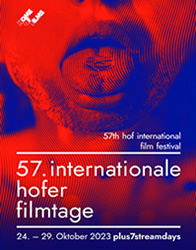True to life …
In 2009, at the 43rd edition, films by Marco Bellocchio, Fassbinder, Wenders, Haneke and Chabrol were screened. But none of them were new, they were all part of the retrospective, whose central figure that year was an actor who had helped to shape the awakening of a new form of European cinema: Lou Castel. Later he himself became a director and worked with experimental films on the “disappearance of the image”.
That year’s festival program dealt with topics which, as Badewitz said, “could happen on every corner”. Among the films from Germany, the number of documentaries exceeded the number of feature films for the first time. Particulary interesting were: SCHWARZ AUF WEISS (“In black and white”) by the investigative journalist Günter Wallraff, who, on a trip through Germany, examined the reactions in this country to foreigners in everyday situations, particularly dark-skinned foreigners. The result: one “doesn’t want them here”.
“We show life in all of its facets,”
said Heinz Badewitz as he introduced the program of the 44th edition in 2010. Chris Kraus presented his latest work, POLL; from France came CARLOS – THE JACKAL (CARLOS – DER SCHAKAL), a 190-minute feature film about the most wanted terrorist in the 70s and 80s; from the USA there was the sensational ballet-thriller BLACK SWAN by Darren Aronofsky, who had his Hof debut in 1998 with the experimental science-fiction film PI. The retrospective was dedicated to the New Hollywood director Bob Rafelson, who preferred to have his works “not compared to big films but rather only smaller films.” And the Film Award of the City of Hof, which by now was being presented for the 25th time, went to Oscar®-winner Caroline Link. She, like Doris Dörrie before her, had experienced her early years in Hof as a hostess in guest services.
In the following year, the Film Award of the City of Hof was bestowed upon Peter Kern, who, with very little money, made films on big subjects and showed many of them at the festival in Hof. Just like Kern, the laudatory speaker traveled to Hof from Vienna, but he was originally from Hof: the columnist Helmut Schödel. Hof original locations appeared in one film which was anxiously awaited by local audiences: the film was titled DAS UNSICHTBARE MÄDCHEN (“The invisible girl”) and was inspired by the real-life case of the disappearance of the little girl Peggy from Lichtenberg. A film called DIE UNSICHTBARE (“The invisible”), about a young acting student who does everything to remain unnoticed, also enjoyed great applause. The director, Christian Schwochow, however, stood out.
The exciting retrospective centred on the British director David Mackenzie, whose new film PERFECT SENSE proved to be a sensational apocalyptic drama in which the world as we know it collapses due to a mysterious epidemic. This was set against an intimate, poetic love story. The apocalypse had never been so disturbing.
There was only one reason why the retrospective, also called “a Portrait”, in 2012 was forgone: Rosa von Praunheim turned 70 – and presented 70 films, which totalled 20 hours and were spread across 13 special programs. Otherwise:
“We have everything cinema has to offer,”
said Heinz Badewitz – thought-provoking and weighty, but also abundantly entertaining. Private life, the search for happiness, and sexuality played a significant role. Exciting things came from America: KILLING THEM SOFTLY with Brad Pitt, the thriller COLD BLOOD by Austria’s Oscar®-winner Stefan Ruzowitzky, and THE SESSIONS, whose protagonist was a paralysed journalist who wanted to lose his virginity at the age of 38. Spirit and humour, poetry and deep humanity shape this film, which, however, contains the very unfriendly line claiming that Germany is the only country in the world in which “humor is forbidden”.
2013 was another good year for German film. Convincing were HOUSTON by Bastian Günther, WESTEN (WEST) by Schochow, Frederik Steiner’s UND MORGEN MITTAG BIN ICH TOT (ZURICH) about assisted suicide for the terminally ill, and HANNAS REISE (HANNA’S JOURNEY) by Julia von Heinz. From Great Britain came the captivating masterpieces LE WEEKEND and STILL LIFE, both of which were too unspectacular and too good for everyday cinema and, for that reason, exactly right for a festival like Hof. For the first time, the Hans Vogt Prize was awarded at the festival – Edgar Reitz received it – which reminds of the pioneer of talking films who originated from the village of Wurlitz, near the neighboring city of Rehau. The laudatory speaker for the Film Award of the City of Hof – given to the Austrian director Barbara Albert that year – was Peter Kern, who returned for his last appearance at the festival.


